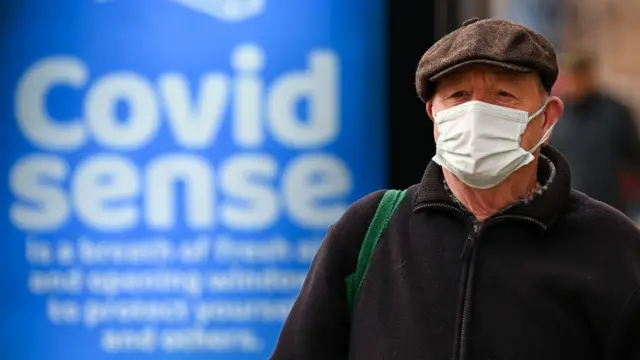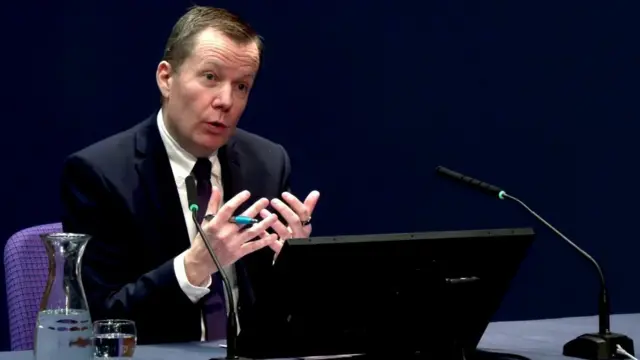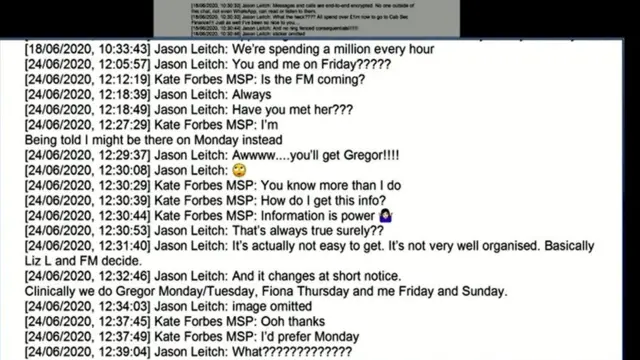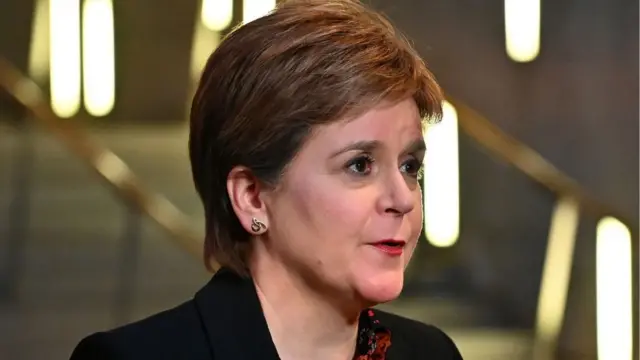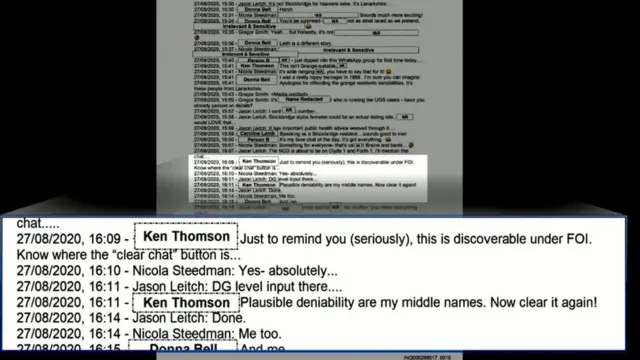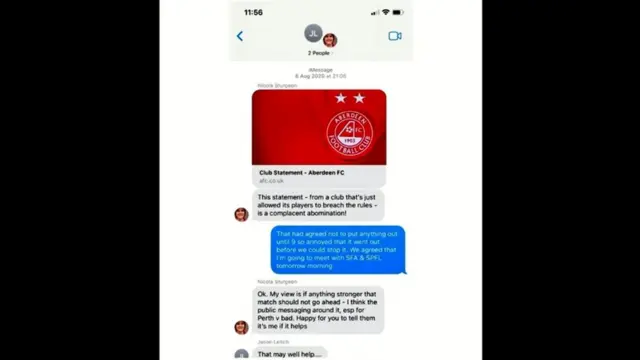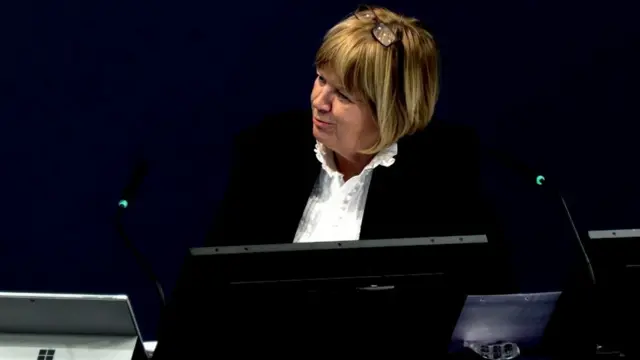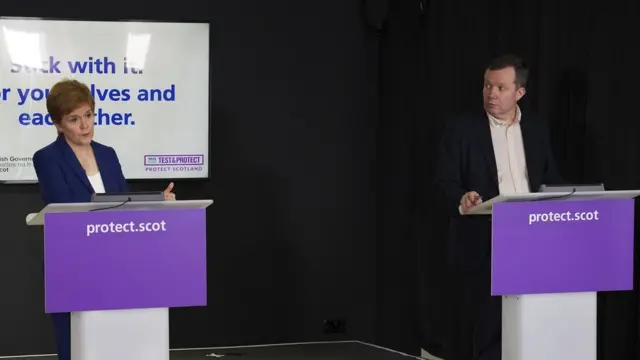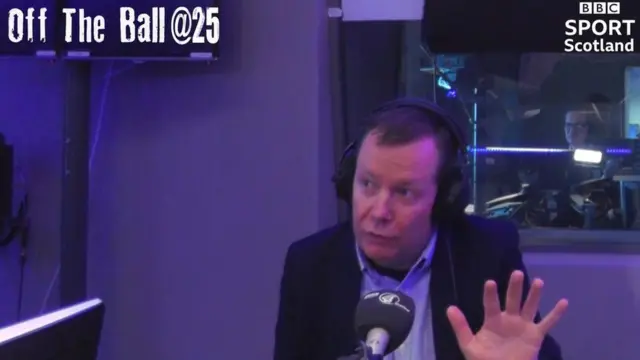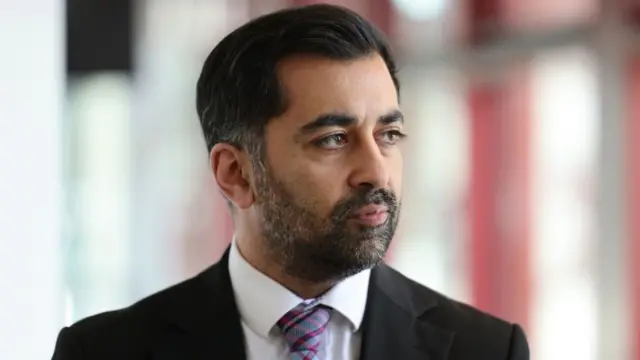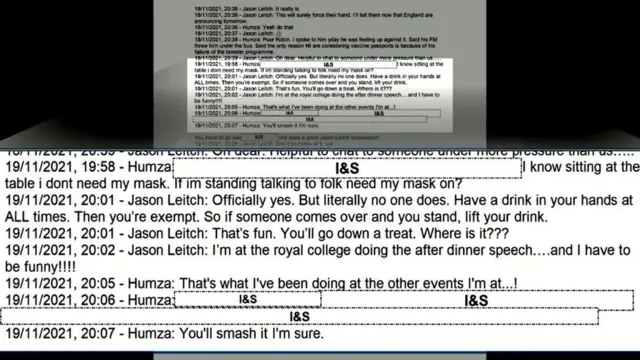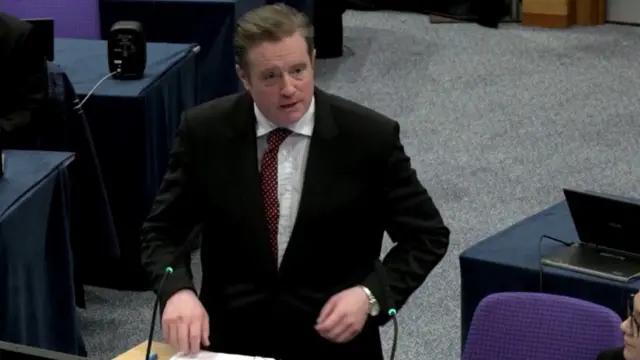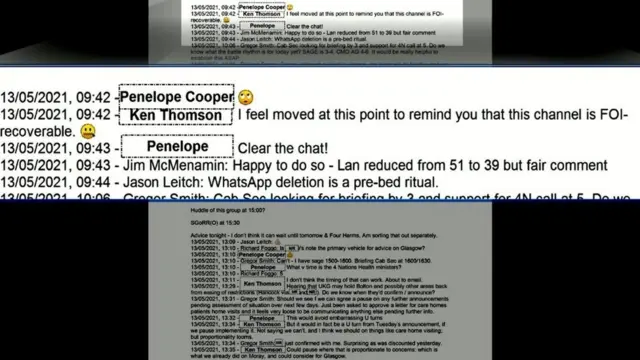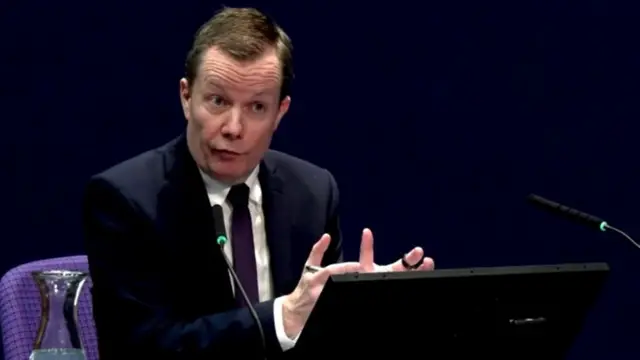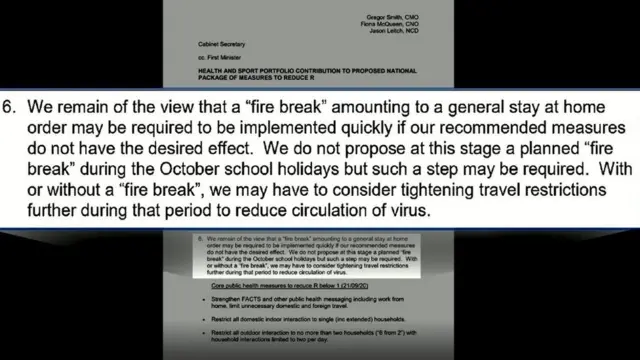'We had to look at other places and learn from them'published at 12:21 GMT 23 January 2024
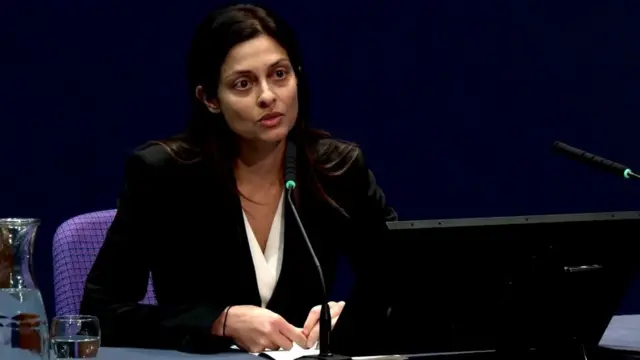
Professor Devi Sridhar, who is the chair of Global Public Health at the University of Edinburgh, is the next witness.
She explains many of the questions Britain was grappling with were exactly the same questions as being asked internationally.
The academic says every country has something to learn from other countries and there needs to be a degree of humility when looking at parts of the world that have been hit badly.
"Infectious diseases is not really a high income world problem," she explains.
Prof Sridhar says: "That was very valid that we had to look at other places and learn from them."
She says we had time to learn from other countries and the Covd outbreak on the Princess Diamond cruise ship, which was quarantined in Japan in February 2020
High income countries had not faced anything like this, she says, adding "there was a sense of complacency across high income countries".
